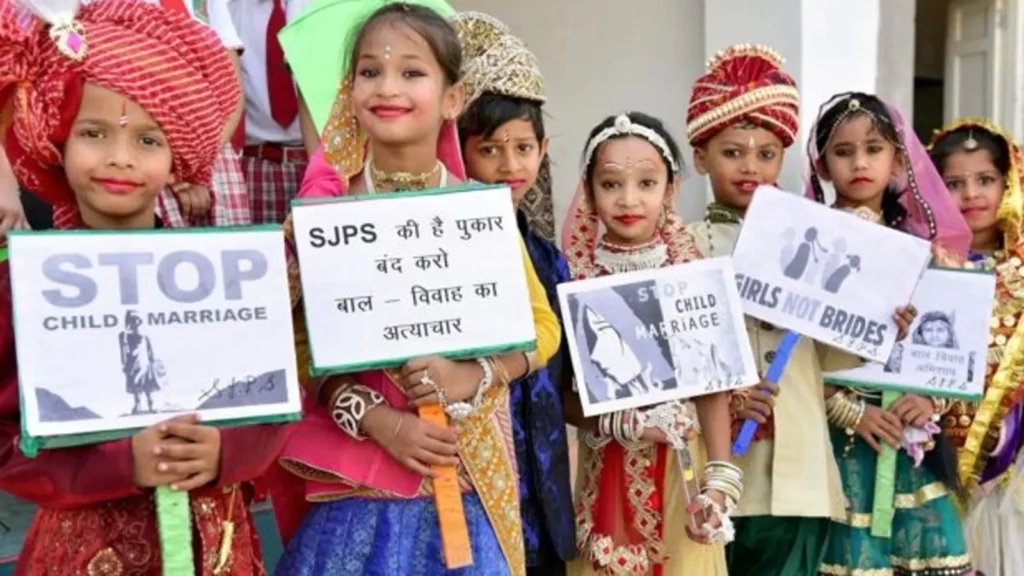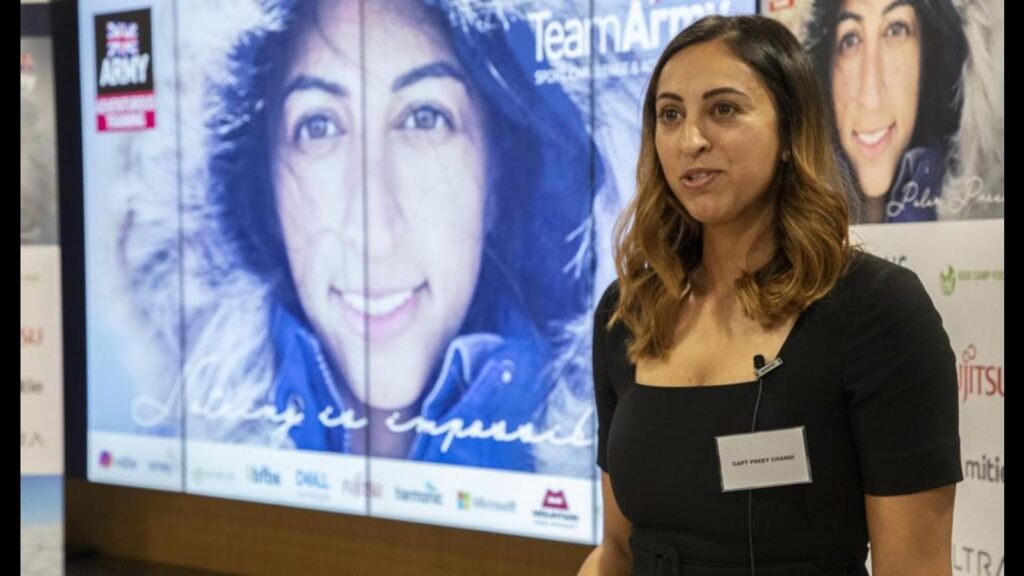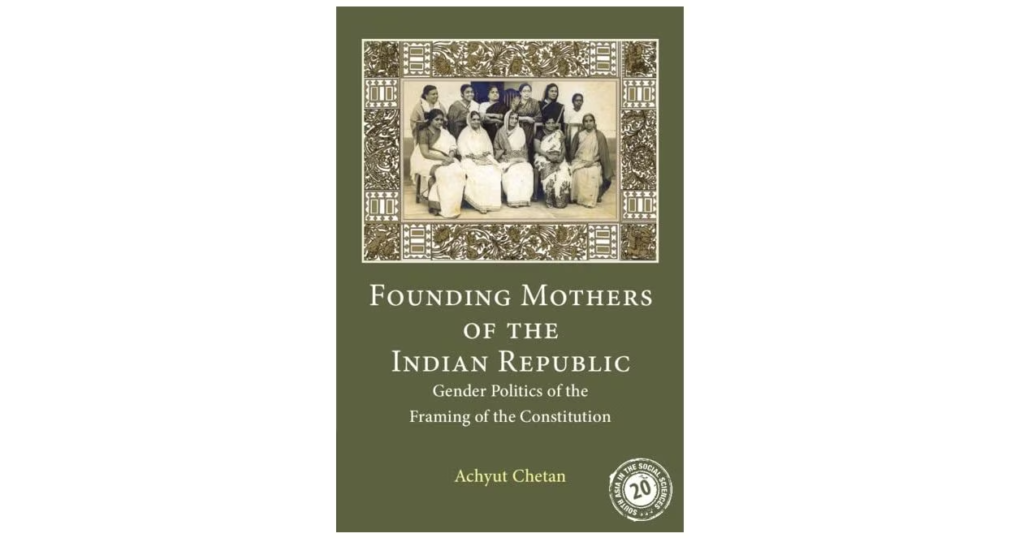On the first day of Assam chief minister Himanta Biswa Sarma’s “complete war” on child marriages, 1,800 people were arrested under provisions of the Prohibition of the Child Marriage act that puts the minimum age of marriage at 18 for women and 21 for men.
Those arrested included 52 qazis or priests and many arrests are reported to have been made in Muslim and Adivasi-dominated districts.
Sarma has insisted that his campaign is not directed at any one community.
India’s enduring shame
In absolute numbers, India is home to the largest number of child brides in the world with 1.5 million girls under 18 married every year, according to Unicef.
The states where the most number of child marriages take place are West Bengal, Bihar and Tripura where over 40% of girls marry before their 18th birthday, according to the National Family Health Survey (NFHS) data. It is also prevalent in states like Jharkhand that have a significant tribal population.

The price of child marriage is well known: Higher fertility, poor maternal and child health outcomes and the continuing denial of autonomy for girls within families. In Jharkhand where 32.2% of girls marry before they turn 18, infant mortality is 37.9%, according to NFHS-5.
The pandemic during which schools were either shut down or switched to online classes had a disproportionate impact on girls who lag in accessing digital resources like smart phones–only 16% of females, 36% of males, have internet access, according to the National Sample Survey 2017-18.
The combination of patriarchy, poverty and the pandemic proved to be too heavy a burden on many families. Between March and May 2020, Childline India, an organisation that helps children in distress, intervened in 5,333 child marriages. Given that there was a strict lockdown at the time, the number was alarming.
In its 2020 Global Girlhood Report, The Lancet, predicted 2.5 million girls worldwide were at risk of being forced into child marriage.
The good news
Child marriage saw a 20% decline in India in just a decade from 47% in 2006 to 27% in 2016, reports Unicef. Even the ravages of the pandemic could not stop the slide and in 2021, according to the National Family Health Survey-5 (NFHS-5), child marriages were down to 23.3%.
That’s still unacceptably high but proof that positive interventions work. “Access to secondary education is a silver bullet,” said Uma Mahadevan-Dasgupta, additional chief secretary, panchayati raj, Karnataka.
It’s not a coincidence that child marriages have declined as educational attainment and public infrastructure, including residential schools and public transport, for children have improved.
Add to this, the many programmes to counter child marriage launched by states. In West Bengal, for instance, the Kanyashree scheme offers financial aid to girls who wish to pursue higher studies. The success of Bihar’s free cycle scheme for girls to go to school has led others like Chhattisgarh and Tripura to introduce similar schemes.
Going forward
To deal with the sticky issue of continuing child marriages, several interventions are in place or being mulled over.
One of them includes a proposal to increase the minimum age of marriage for girls from 18 to 21 to bring it at par with men.
In 2017, following recommendations made by former Supreme Court justice Shivraj Patil, Karnataka became the first state to pass an amendment that makes all marriages between minors void. The amendment prescribes a minimum punishment for those involved in such marriages, including parents, priests and even printers of invitation cards.
But mass arrests are emphatically not the answer, said child rights activist Enakshi Ganguly. “You cannot expect the poorest and most marginalised to pay the price for the lack of interventions that include reproductive and sexual health services, education, skill development, and opportunities for economic empowerment.”
Perhaps the real key to solving the problem lies in tapping the aspirations of a new generation of girls. This is a generation that wants to study, play sport and dreams of careers before marriage.
Maybe men in power should talk to these girls before arresting their parents.
(Read Naandi Foundation’s 2018 report on Teenage Girls here).

In numbers
Women’s enrolment in higher education increased to 20.1 million in 2020-21 from 18.8 million in 2019-20. The bad news? Women’s representation remained under 30% in engineering and less than 40% in management courses.
Source: All India Survey on Higher Education, 2020-2021
Seen and heard
“You are supposed to guard the country. If you are busy doing something else, then the waves that you send down the ranks…can we say it’s ok?”
Justice KM Joseph clarified that the Supreme Court’s landmark 2018 judgment striking down adultery as a criminal offence does not apply to the armed forces.
Going places

Polar Preet, the British Army captain of Indian origin aka Preet Chandi has broken the world record for the longest solo and unsupported polar expedition in history. I have written earlier in this newsletter of her 922 mile, 70-day trek across Antarctica in temperatures as low as -50C, surviving a calf burn and 40 falls. Back home, her mum met her at the airport with parathas. Obviously.
Stories you might have missed
Karmic twist?
One of the three men acquitted in the 2012 Chhawla gang rape and murder case was arrested on Sunday on new charges of murdering an auto-rickshaw driver on January 26. In November, Vinod, along with Ravi and Rahul, was acquitted by the Supreme Court for the gang-rape and subsequent murder of a 19-year-old woman in February 2012 in what came to be known as the Chhawla case. The men had been found guilty by a trial court and sentenced to death, a verdict that was upheld by the high court. The Supreme Court, however, found insufficient evidence of their crime and the men walked free. Now, Vinod, one of the three men, is back again on charges of murder.
Asaram sentenced to life (again) for rape (again)
So-called “godman” Asaram Bapu, who is already serving varying jail terms including life sentences in two sexual assault cases, was convicted of raping a Surat-based woman and confining her in his “ashram” in Ahmedabad from 2001 to 2006. Sentencing Asaram to life imprisonment, the court also ordered him to pay of RS 50,000 to the woman he had raped.
Why 30 days?
A Kerala court has asked whether the 30-day waiting period for those wishing to marry under the Special Marriage is “necessary”. After all, no notice is required for those who marry in accordance with religious rites. And very often the Special Marriage Act is used by interfaith couples who might be marrying despite parental opposition.
…And the good news

Absolute euphoria over the triumph of India’s U-19 cricket team in the inaugural junior T20 women’s World Cup in South Africa on Sunday.
The big win comes on the heels of women’s cricket flexing muscle with its ODI World Cup (2005) and runners-up finishes at the 2017 ODI World Cup and 2020 T20 World Cup.
Led by Shafali Verma, the U-19 team routed England with fast bowler Titasa Sadhu, offspinner Archana Devi and leg spinner Parshavi Chopra picking up two wickets a piece to bowl England out for 68.
In March, the women’s IPL kicks off and will undoubtedly spur a countless sporting ambitions amongst girls throughout the length and breadth of India.
Bookshelf
11 characters in search of an author

“This book has long been in search of an author,” begins Achyut Chetan in what must be the understatement of the last 74 years. It certainly seems incredible that since January 1950 when we adopted the Constitution, so little has been written and is known about the 11 “founding mothers”.
What was their contribution to the three-year-long, 169 session framing process? How did they strategize within an overwhelming masculine set-up? Where did they come from, and where did they go? Would our Constitution have read any differently had they not been there?
Describing his book as an “act of rebellion against the politics of anonymity”, Chetan’s book reclaims the contribution of Hansa Mehta, Amrit Kaur, Renuka Ray, Qudsiya Aizaz Rasul, Ammu Swaminathan, Purnima Banerji and Sucheta Kripalani, at the vanguard of the All India Women’s Conference since 1927 and already involved with the feminist politics of the time, as well as G Durgabai, Kamala Chaudhri, Annie Mascarene and Dakshayani Velayudhan, the only Dalit in the assembly along with BR Ambedkar.
Founding Mothers of the Indian Republic: Gender Politics of the Framing of the Constitution by Achyut Chetan, Cambridge University Press, Rs 1,095
AROUND THE WORLD
In China, in an effort to bolster falling birth rates, reports Reuters, health authorities in the southwestern province of Sichuan will allow unmarried individuals to raise a family and enjoy benefits reserved for married couples.
Earlier this month, the country’s bureau of statistics reported a drop of roughly 850,000 people for a population of 1.4 billion, marking the first population decline in the country since 1961.
In Finland, the Sanna Marin-led government has passed a law that makes it substantially easier for trans people to change their legal gender, reports EuroNews. Under the new law, transgender people aged 18 and above can legally change their gender through a process of self-declaration.
In Afghanistan, a grim milestone—500 days since the Taliban banned girls from secondary school. Under this thuggish regime, women cannot travel unescorted without a male chaperone, women may not work with aid agencies, women may not enrol in higher education, cannot take exams.
Take a minute to watch this interactive video by Human Rights Watch.
Before I go… The Woman King, the story of the Agoje, an all-women warrior team tasked with protecting the West African kingdom of Dahomey between the 17th and 19th century is finally out in a movie hall near you. Why this film starring an utterly fierce Viola Davis and directed by Gina Price-Blythewood eluded an Oscar nomination beats me. But do yourself a favour, go watch.
| Were you forwarded this email? Did you stumble upon it online? Sign up here. |
| That’s it for this week. Do you have a tip or information on gender-related developments that you’d like to share? Write to me at: namita.bhandare@gmail.com |